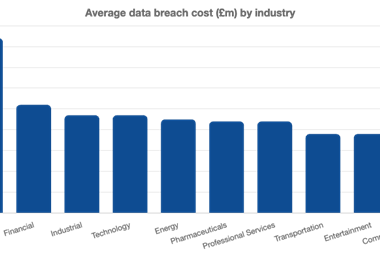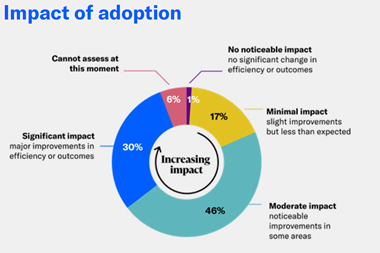Despite the example of WorldCom and other corporate scandals, the Sarbanes-Oxley Act which followed in their wake has not stopped US companies from rolling up the offices of chairman, chief executive officer and sometimes president, too, into a single person.
"In the United States," says Antonio Borges, chairman of the European Corporate Governance Institute and vice-chairman of Goldman Sachs International, "they want a person with authority and autonomy running the company. It is thought that any other model would dilute and lower performance." This explains why he says, "There is an all powerful chairman and CEO that manages at will. Boards are very often people chosen by this CEO and operate in a friendly atmosphere that usually rubber stamps his decisions."
According to Borges, in a speech to the Federation of European Risk Management Associations at Lisbon in October 2005, the counterbalance to the strong CEO is a powerful, ruthless capital market, and this market wants accurate and speedy information on which to base its judgements. "The reason why the scandals were so serious was that people were misleading the market by providing wrong information, so the market could not exercise its authority.
Their ability to provide misleading information was what destroyed the market. The purpose of Sarbanes-Oxley is to make sure companies now provide the right information to the market," he said.
New York based Refco was one of the world's leading financial futures and commodities traders. Phillip Bennett joined Refco from Chase Manhattan Bank in 1981 and helped to build the company. He occupied the president-chairman-CEO trinity of executive power from 1998 and was still doing so when the company went public in August 2005.
Bennett lived very discretely. He gave few interviews, and little has been published about him. Even his biography in the company prospectus gives away nothing of his background other than saying that he a Cambridge graduate.
It is also clear that Bennett has been a very wealthy man; his total package from Refco for his executive roles has varied around $4m in the last few years. The float allowed him and other shareholders to capitalise some of their holdings, although he retained 33% of the ownership.
An initial public offering (IPO) of 26.5m shares at $22.00 took place on 11 August, and the stock began trading on the New York Stock Exchange.
Investors had not been deterred by any of the usual descriptions of risk set out in the IPO document, nor by the statement that the auditors had found 'two significant deficiencies' in the company's internal controls of financial reporting at the end of the financial year on 28 February 2005, and that it would have to put them right. One of these deficiencies was that the finance department had inadequate resources to prepare financial statements in good time. The other was a lack of formalised procedures for closing the company's books.
By the end of September, the price had risen to $30. Suddenly, on 10 October, Refco announced that an internal review had revealed that an entity controlled by Phillip Bennett owed the company $430m. He had repaid the debt, the company said, but warned that its financial statements for the years to February 2002, 2003, 2004 and 2005 were no longer reliable.
Bennett had accepted the board's 'request' to take leave of absence.
The next day, the company stated, 'Based on the results of the internal investigation to date, the company believes that the receivable consisted in major part of uncollectable historical obligations owed by unrelated third parties to the company, that arose as far back as at least 1998.
These obligations were transferred periodically to the entity controlled by Mr Bennett, and the company's books and records then reflected a receivable from that entity, rather than a receivable from the originating accounts.
'The fact that the receivable was from a company controlled by Mr Bennett was hidden at the end of quarterly and annual reporting periods by reason of transfers to a third party customer account that we currently believe is unaffiliated with Mr. Bennett or anyone else at the company. The nature and facts surrounding these transfers are being investigated by the Audit Committee.'
Having closed at $28.56 on Friday 8 October, the company's shares dropped to $13.85 on 11 October, taking more than $1bn off the market capitalisation.
On 13 October, the price fell below $8.00 and the company halted its trading.
The same day, it also froze client accounts. On 17 October, Bennett was arrested, charged with securities fraud and released on $50m bail. On 18 October, Refco filed for administrative insolvency, and agreed to sell its futures brokerage business to buy-out specialist JC Flowers & Co.
At the moment, it is only possible to speculate why Bennett may have entered into these transactions, which allegedly began well before the company went public. It appears they may have begun in the same year that he took on the full panoply of top executive roles. They emerged only two months after the IPO, which was itself only a month after WorldCom's Bernie Ebbers had been sentenced to jail for 25 years for fraud and conspiracy.
None of Bennett's alleged transactions was disclosed in the IPO registration document filed with the Securities and Exchange Commission (SEC) and signed by independent advisers and bankers, despite all the due diligence that an IPO entails.
Rules and regulations
Forbidding managers to make secret transactions is a core element of protecting the interest of all shareholders. SEC regulations require a company to disclose all transactions between the company and an executive officer in excess of $60,000 in the prospectus. Sarbanes-Oxley outlawed loans to executives, required increased internal controls and strengthened auditing requirements with creation of the Public Company Accounting Oversight Board. Refco's own code of ethics also required senior officers to disclose any transaction that could create, or appear to create, a conflict of interest.
As Borges points out, the capital market cannot exercise its role of balancing the autonomy of a powerful executive - effectively acting on behalf of shareholders - without correct and timely information. The US looks to manage the risk of duplicitous management not by structure, but by making the penalties for default severe. The CEO and the chief financial officer have to sign the accounts personally. The SEC can act very swiftly with fraud charges when there is evidence, and US courts are prepared to impose exemplary sentences. Ebbers has appealed against his 25 year sentence, but the threat of a far shorter period in prison may deter someone used to the comforts of the executive suite.
In the UK, corporate governance codes acknowledge the risks inherent in concentrating power in the hands of one person. There is a strong emphasis on separating the role of chairman from that of the chief executive or managing director. Non-executive directors are also expected to play an important part in ensuring that management runs the company for the benefit of all shareholders.
There are likely to be some other repercussions from the Refco collapse.
In Austria, the Government has ordered an investigation into the country's fourth largest bank, Bawag PSK Group, which allegedly lent money to Philip Bennett to allow him to repay Refco. New York lawyers Shalov, Stone & Bonner have filed a class action against Bennett; chief financial office Gerald Sherer, the firm's outside accountant and auditor Grant Thornton, and the lead managers of the IPO, Credit Suisse First Boston, Goldman, Sachs & Co. and Bank of America Securities.
Yet, Refco has created no more clamour to change a model that is in the words of Borges 'prone to abuse,' than did WorldCom. One factor behind the muted response is that Refco is comparatively small, and not a businesses for the masses. It is not a company which has scoured the pensions of many ordinary employees, and parts of it remained attractive. In early November, the UK financial services company, Man Group, announced that it had acquired Refco's regulated futures business for $323m, a deal widely welcomed in the financial market.
Borges says that the US model of corporate governance encourages entrepreneurial risk. "Capital is looking for risky ways of investing, because that is where the rewards are available. If a business is beginning to succeed, it can get capital now." If, afterwards, the company does not perform, then the market will be ruthless. "The United States is incredible in its search for efficiency. People move, capital moves, and companies get left behind when they are failing." In exchange, investors are still willing to accept a concentration of executive power in the hands of one person, even when history shows it can sometimes be against their interest.
- Lee Coppack is a writer and analyst. She is also editor of Strategic Risks' sister publication, Catastrophe Risk Management, E-mail: lee@coppack.co.uk
CONFLICTS OF INTEREST
'A conflict of interest occurs when a Senior Officer's private interests interfere in any way with the interests of Refco. A Senior Officer's obligation to conduct Refco's business in an honest and ethical manner includes the ethical handling of actual or apparent conflicts of interest between personal and professional relationships. Before making any investment, accepting any position or benefits, participating in any transaction or business arrangement or otherwise acting in a manner that creates or appears to create a conflict of interest, a Senior Officer must make full disclosure of all facts and circumstances to the chair of the Audit Committee of the Board of Directors, and obtain the prior written approval of the Audit Committee of the Board of Directors. The disclosure obligations of Senior Officers extend to disclosure of changed circumstances relating to apparent or actual conflicts of interest.'
- Extract from Refco's Code of ethics for chief executive and senior financial officers. Adopted by the Board of Directors on 31 July 2005.



















